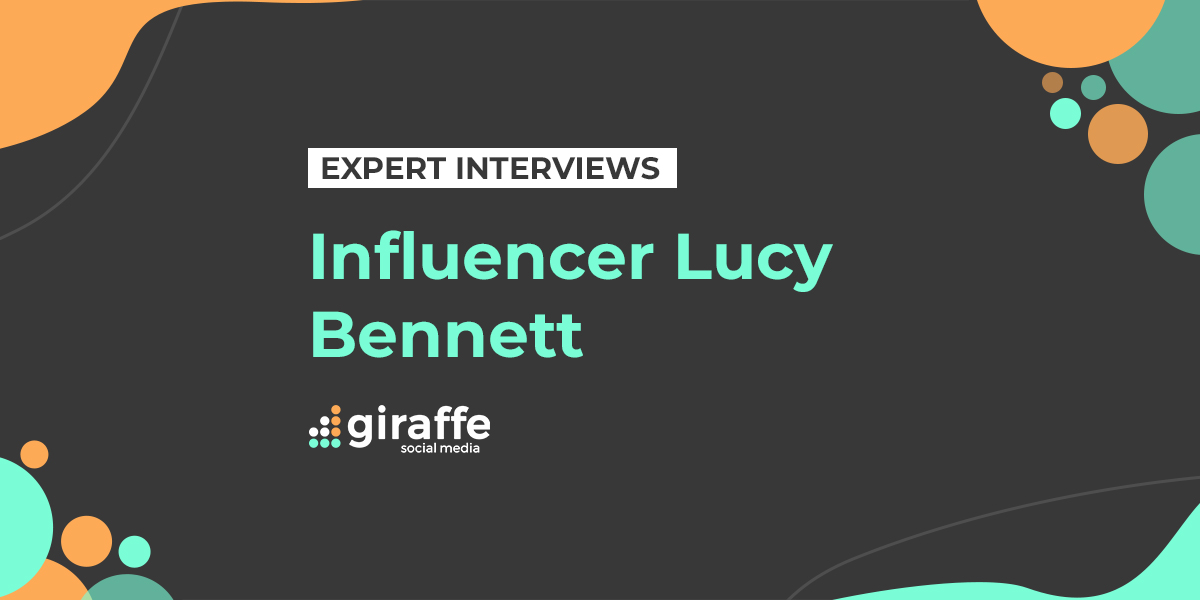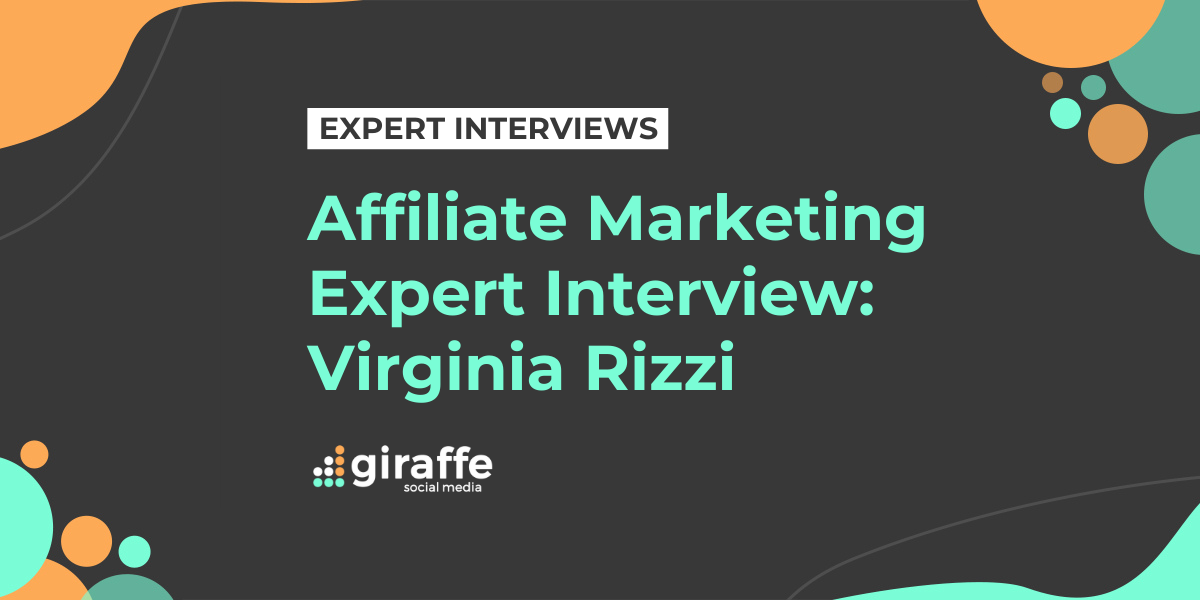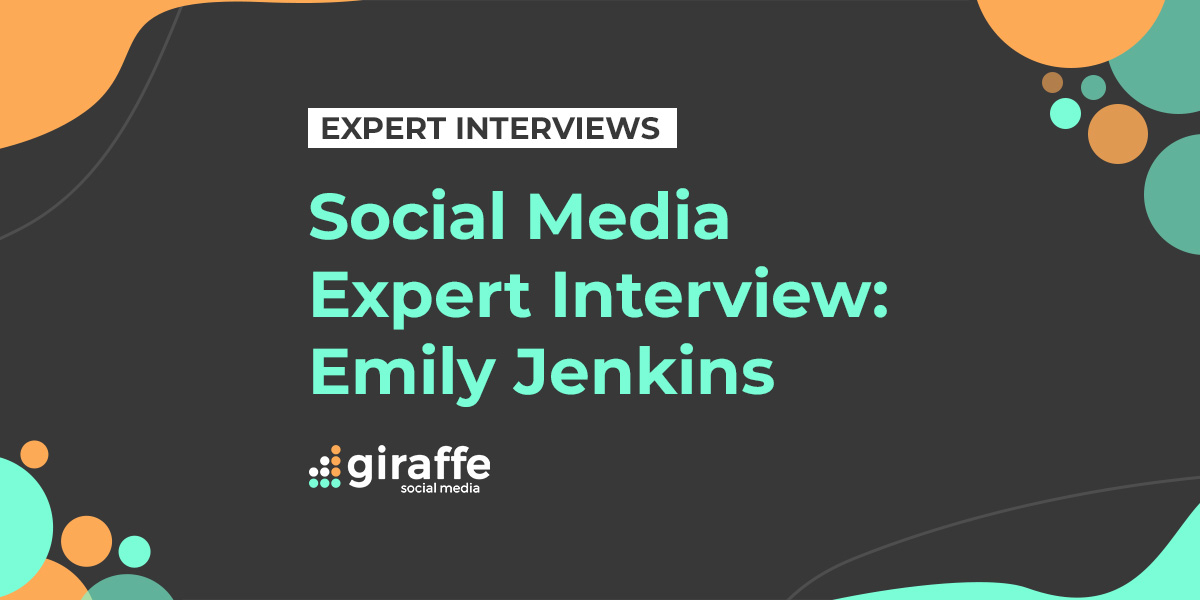This month we interviewed model and influencer, Lucy Bennett (@LucyBennettModel). Read on to discover her perspective on being an influencer, working with brands and advice for aspiring content creators.
This interview has been transcribed from a video call with Lucy Bennett for The Giraffe Social Media Podcast and has been paraphrased in places.
How do you feel about the influencer title?
I have my moments with it. I feel like, in the world of sponsored ads, people hear the word influencer and immediately assume you’re constantly trying to sell them things they don’t want. But my take on it is more about promoting confidence and important causes. Which I feel is such a great thing for younger generations today. When we were growing up, we didn’t have as much social media, and I feel like there wasn’t as much positivity out there. I prefer to look at it like I’m influencing people to love themselves.
And what does Lucy Bennett get up to when not ‘influencing’ online?
I work as a plus-size model, again another term I don’t really like (she laughs), I’m just a model, and I like carbohydrates.
How has that been during COVID-19?
It was quiet at first, but fortunately, because of social media, I was able to do a couple of shoots at home, just by myself on a tripod. Which was such a blessing, both to have some work but also to keep me sane. In lockdown, I made a real effort to treat every day as a workday. So, if I wasn’t shooting something, I would create a structure for myself and create some kind of content for Instagram. Which helped a lot. It also helped attract clients as I went through my house taking pictures in every area to show what I had available.
It’s not quite back to normal yet, but things are a lot better than I thought – thank goodness. It is weird still. You go to work, and you’ve got to wear a mask everywhere if you’re not on set and have temperature tests on the door. It’s good though because it definitely makes you feel less anxious about being around people all day.
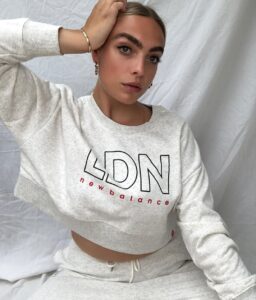
What are some of your favourite campaigns you’ve worked on?
The Dyson Coralle straightener ad for John Lewis was a real highlight. I find that plus-size modelling, although it has grown hugely in the last few years, is not as common in the beauty world. So, to get that kind of work and feel you’re being treated the same as a straight-size model is so exciting. I also shot a campaign for Lemonade Dolls in Ibiza last year, which was so much fun. It’s cool to work with a brand that wants to actively showcase diversity. And you can tell when a brand is doing it from the standpoint of wanting to be inclusive rather than feeling as though they have to be. I loved the shoot, and the pictures weren’t retouched, so it was a very empowering trip.
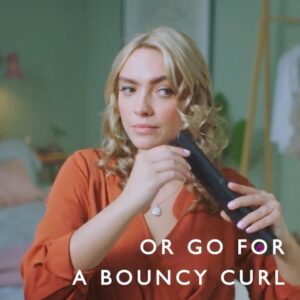
Why do you love social media?
I love that it’s paving the way for younger generations to be okay with who they are. It can be a double-edged sword in that a lot of what you see online isn’t always reality. But there are so many influencers out there, just promoting their natural, authentic selves, and I certainly try to do that as well. I know I didn’t see a lot of it growing up. I remember seeing a plus-size model in a magazine once when I was fifteen, and I didn’t know anything about that world. Whereas now, social media is so accessible. I think that outweighs a lot of the negatives. Of course, you’ve got to take social media with a pinch of salt and give yourself a break when you need it, but I think it can do a lot of good.
Can you talk a little bit about how you use your platform to promote causes you believe in?
I found that originally when I was going through issues with my mental health, I felt like I had to come away from social media. I felt like I couldn’t promote constant positivity as it just wasn’t how I was feeling. The change for me was getting over that, and just saying, “You know what? Share it anyway.” A big element of mental health is that you always feel like you’re alone, and to see other people in the same boat can be really comforting. Which has given me a real push to post as much as I can, no matter how I’m feeling.
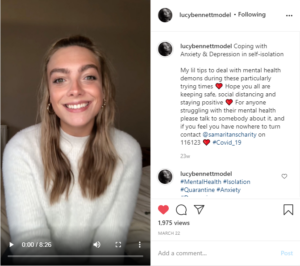
When did you start working with brands on social?
I think it was about five years ago when I was living in Australia. My social media was slowly starting to grow, but I still had less than 5k followers. Brands started reaching out to send me things, which was amazing, and I just said yes to everything. My page grew really quickly after that, within a couple of weeks, I was at 10k, then 20k. That’s when I started being a lot more conscious about my content too. I mean, I was living in Sydney, and I was at the beach a lot. I became more conscious of myself in a bikini. So, I decided to start opening up about my insecurities and how I was overcoming them.
Have you become more selective in accepting brand requests?
I’ve reached a point where, obviously I’m still very grateful, but I’ve realised you can take on too much. In work and in life, saying yes to everything isn’t always the best idea. Soon you’re overbooking yourself and are stressed out. I’ve learnt that while social media is a daily thing, I need my time off, just like everyone else. So, I try not to say yes to too much, especially because I don’t want to feel like I’m letting anyone down.
What guidelines would you love a brand to follow when reaching out for endorsement?
I prefer brands to reach out via my work email, which I check frequently. But the big things I want to know are why the brand wants to work with me and what their key message is. I tend to get put off fashion brands, for example, who have limited sizing. If I would fit into their biggest size, I don’t feel like that’s particularly inclusive and that the brand is just trying to tick a box with a plus-size influencer. The same goes for racial representation, if you’re just showcasing other white, blonde girls, then I’m not really interested. On social media, you have the power to promote a bigger message, and if brands aren’t doing their part, I’m less willing to get involved.

How do you plan your content?
It’s a real mix. I’ll take spontaneous pictures if I’m out for a nice dinner with friends. But in terms of creating content for the week, I plan out certain posts that I want to do. I think about the topics I want to discuss that week and then figure out how to fit it around my work commitments. Work can come in quite last minute, so it’s tricky. But if I have a day off, I look at my plan and create the content that I really want to get across.
How much creative input do brands have when they ask you to post?
It always has to be a collaboration. Even when you’re being paid, you have your own message and aesthetic that you need to stick to. Ideally, it’s a case of discussing with the company how your brands fit together when making content. I’ve been really fortunate that when brands reach out to me, they usually highlight what they like about my Instagram and how it fits with their brand. I wouldn’t ever do anything that I didn’t feel comfortable with, or if I felt like I wasn’t being authentic.
What advice would you give someone who wanted to grow their following on social?
Don’t try and be anything that you’re not. There’s nothing more aggravating than someone coming across as fake. Especially on Instagram, there’s too much of it. Don’t compromise, and have a focus. My focus starting out was body positivity. In my head, I just thought, “If I make one girl feel comfortable in her body, then I’ve done something.” It doesn’t matter how many people you reach if you’re reaching one person who needs to hear it. Always have that in the back of your mind.
Then it’s just about creating content around your focus. Make sure you’re posting regularly, interact with your followers, get back to messages, it all helps you solidify your presence.
Do you think social media is changing?
Definitely, in terms of the bigger social causes happening right now, it almost feels irresponsible to have a platform and not be using it positively. Although, I have seen a rise in follower negativity of influencers who aren’t deemed to be “doing enough”. It’s such a fine line. I really feel for influencers, especially when they have other work alongside. Followers can be brutal. People have to remember that an influencer is a real person. They might make mistakes, say the wrong thing or not “do enough” at a certain time, but as long as they’re actively trying to be a voice for good, they’re doing what they can.



